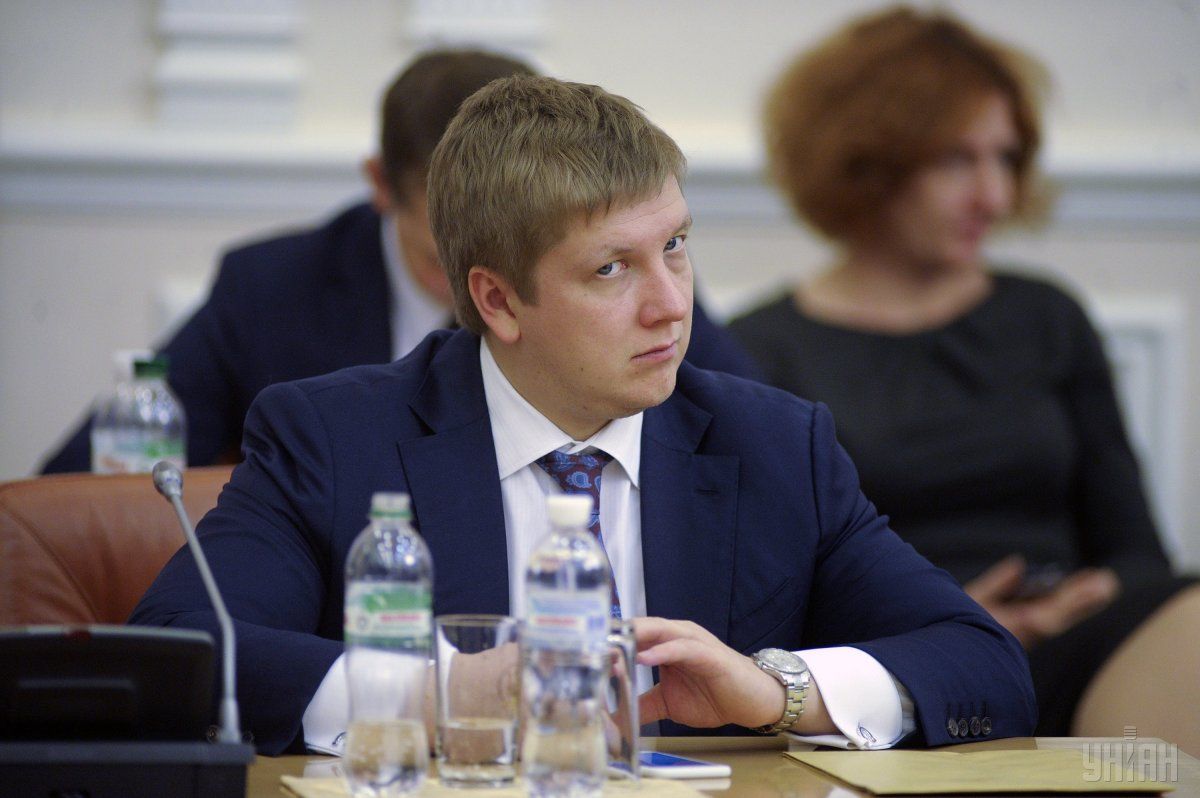
Groysman-Kobolyev row playing in Kremlin's hands
The "salary spat" between Prime Minister Volodymyr Groysman and top managers of Naftogaz escalated to the government’s refusal to renew the contract with CEO, Andriy Kobolyev. The latter stated that the Cabinet's actions were unlawful but did not specify his further moves. The whole situation is now in limbo. Experts suggest there is some pre-election fleur to it, but this will only play into the hands of Russia's Gazprom.
The election campaign in Ukraine is overwhelmed by scandals. One of the latest ones is related to Naftogaz CEO Andriy Kobolyev. This week, Prime Minister Volodymyr Groysman announced at a Cabinet meeting that the government would not renew Kobolyev's contract.
“On March 22, the contract with the Chairman of the Board of Naftogaz expires. This means that we must make a decision in terms of the effectiveness of corporate governance. Today we decide to announce a competition on March 23 for the position of chairman of the board of Naftogaz,” said Groysman. According to him, the Cabinet will discuss with the state company new terms of the contract. Most likely, they will affect salaries and bonus payments to top management.
It should be admitted that Groysman's act has been consistent all the way. Back in January, in response to the violent criticism of multi-million revenues of Naftogaz managers, which aggravated even further after Naftogaz bosses received bonuses for the company's spectacular win in Stockholm arbitration against Gazprom, he stressed he would not allow such sky-high payments anymore. Then, Groysman offered the Supervisory Board to review the contracts with the management to rule out "exorbitant" salaries and bonuses. In response, Kobolyev said that the Cabinet had no right to dictate its conditions under the law and called the very issue of his salary "political", having vowed all his money received in the company to charities.
Failing to take PM's wishes into account, the supervisory board decided to extend the contract with Kobolyev, setting his monthly salary at over UAH 2 million (almost US$75,000).
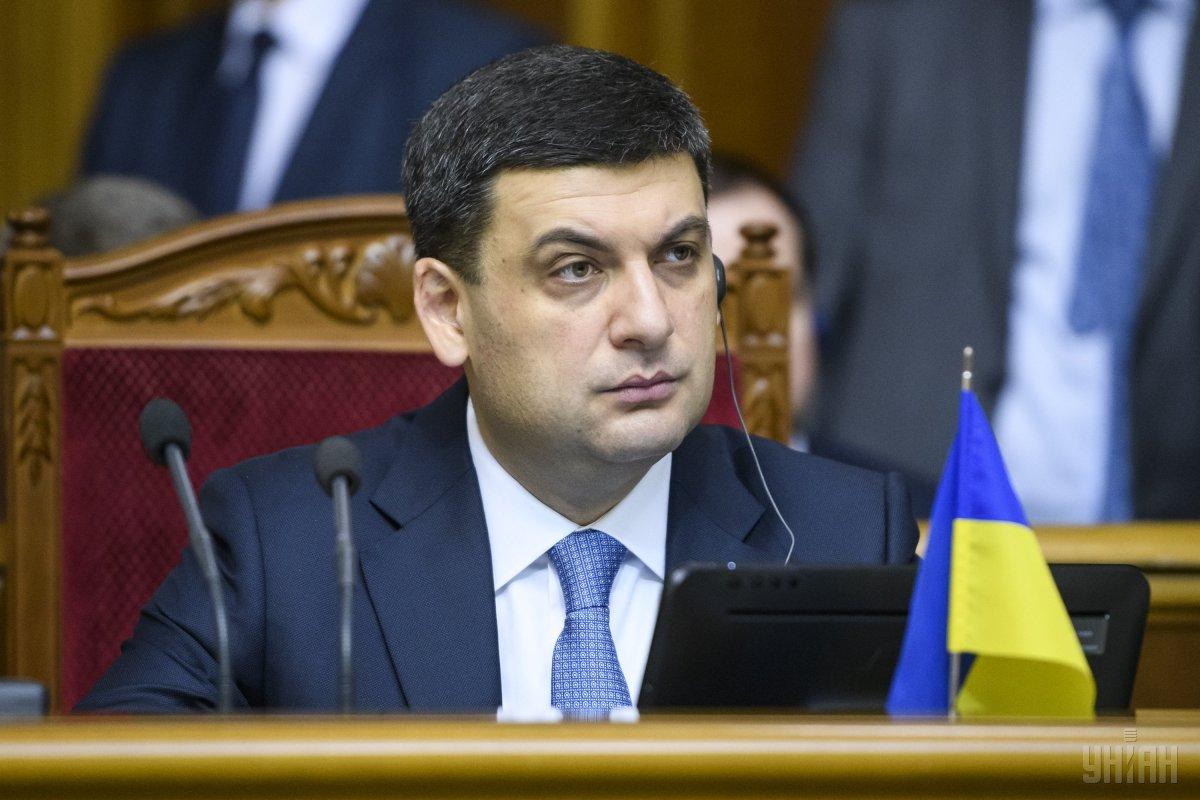
In response, Groysman made the statement about Kobolyev's contract. The latter chose not to remain silent: “Both the preliminary decision of the government to terminate my contract and the current decision to announce the competition is contrary to Ukrainian law, moreover, the international community and organizations that sponsored corporate governance reforms and helped pass this law share this idea... This is contrary to the spirit of reform because the whole ideology was about the supervisory Board being the main governance tool for the company's major shareholder, the government," said Kobolyev. He added that the Cabinet of Ministers had no authority to make HR decisions, since the Supervisory Board had been created in Naftogaz to this end.
It remains to be seen what Kobolyev's next step will be – whether to challenge the decision of the Cabinet of Ministers, or take part in the competition.
Squabbles in public
The formal reason for all these mutual public hits is the corporate governance reform launched in 2015 according to the principles of the Organization for Economic Cooperation and Development. Thanks to the reform, management in state corporations is focused in the hands of supervisory boards appointed by government. It is designed to prevent corruption and eliminate manual management of state-owned companies. In 2016, the Naftogaz Supervisory Board was formed, and from that moment the confrontation between the government and the company began.
Groysman’s decisions were in complete contradiction with those of the Naftogaz Supervisory Board, which supported Kobolyev in all matters. Then, a series of suits were filed with courts by both sides, on issues ranging from compensation for gas supplies to households to disputes over tariffs and the mechanism for paying subsidies. Groysman even accused the company of trying to influence gas prices. Besides, the prime minister urged Naftogaz to complete unbundling, while Kobolyev resisted, claiming this would not be a timely move considering how it could affect the ongoing litigation with Gazprom.
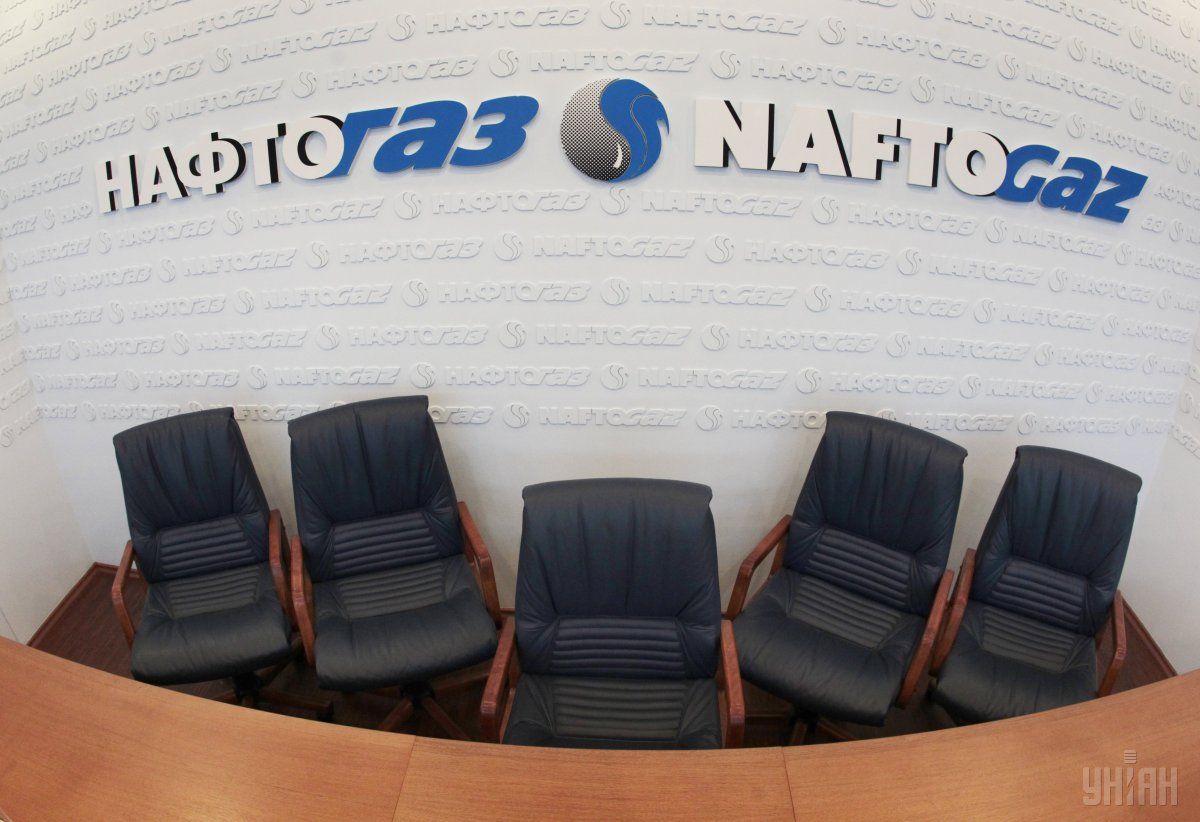
With his victories over the Russian gas monopoly in courts as well as brilliant financial reporting, Kobolyev further strengthened his positions. But that's when the scandal hit over bonus payments for the win over Gazprom. Kobolyev received his $8 million bonus, which he then wired to his mother, who is now in the U.S., "to keep the money safe.
Groysman found this bonus a great pretext for a public attack on Naftogaz. True, the question remained open: didn't the prime minister look at Kobolyev's contract when signing it? After all, these and future bonuses were all laid down in it...
The most recent high-profile row coincided with the expiration of Kobolyev's contract. Former Chief Commercial Officer of Naftogaz, and since November 2018, Executive Director of the Naftogaz Group, Yuriy Vitrenko, said corruption schemes were applied in the sales of gas from underground gas storages. He says these schemes confirm the conflict of interests of the newly appointed head of Naftogaz's gas department, Andriy Favorov, a protege of the Cabinet of Ministers. Vitrenko believes gas was sold at recuded prices to ERU Trading, the company previously led by Favorov.
Meanwhile, Kobolyev voiced other facts noting at signs of embezzlement. According to him, the information system developed by Ukrtransgaz to manage daily gas balancing in Ukraine's market recorded how gas distribution companies owned by oligarch Dmytro Firtash sold to industrial consumers certain volumes of gas initially set to be supplied to households.
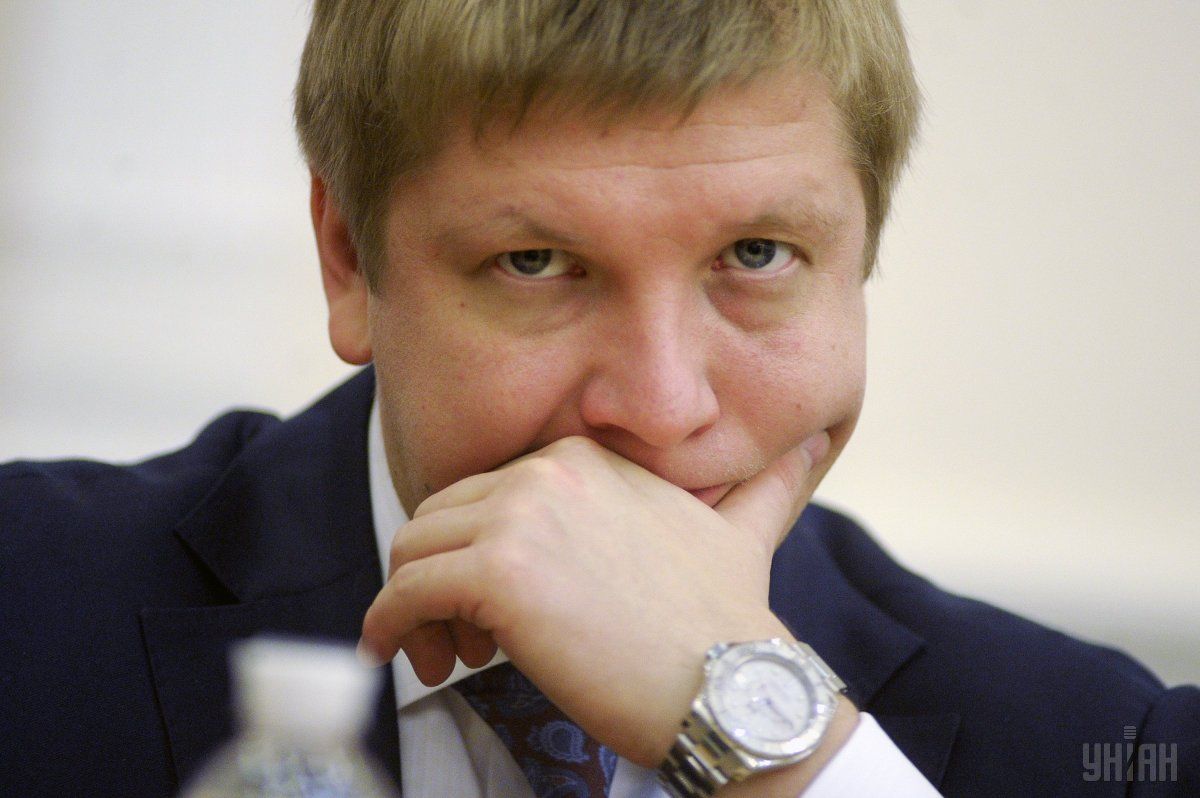
“This situation should be followed by a detailed investigation: why and how this happened. And the most important thing is how often this happened in the past,” noted Kobolyev.
Perhaps this could the reason why the prime minister turned against the state corporation: rumors have it that people from the orbit of the runaway gas tycoon have recently increased their efforts to approach Groysman.
Whatever it is, market experts are unanimous in their opinion that the ongoing developments are connected with the election campaign, playing into the hands of Russia's Gazprom.
Gazprom applauds
President of the Center for Globalization Strategy XXI, Mykhailo Honchar, believes that today it is an extremely inappropriate moment to unfold the Naftogaz row as this will affect company stability and certainly be exploited by Moscow.
“it's been a month since Groysman started expressing disagreement with high salaries of Naftogaz top managers and Kobolyev personally, although he should have been aware of contractual terms better than anyone. However, according to the current legislation, the contract is issued by the decision of the Supervisory Board comprised of independent directors. So they did give their approval to extend Kobolyev's contract. But Groysman decided in his own way. The situation is stupid, roughly speaking. You can't do it this way. The very decision of the Supervisory Board was not of a political nature, and, moreover, 2019 is a year when two election campaigns are being held, and therefore, in any case, it was necessary to keep Naftogaz leaders in place to calmly pass the period of political turbulence and possible change of top authorities. You also need to take into account the expiry of the gas contract with Gazprom from January 1, 2020, which is also a point of uncertainty. Therefore, it is simply necessary to ensure internal stability in the gas sphere. Meanwhile, Groysman's actions lead us in the opposite direction. Now Gazprom can only applaud this," the expert noted.
He added that in a recent interview with a Luxembourg-based news outlet, Russian Prime Minister Dmitry Medvedev spoke on relations between Gazprom and Naftogaz, in particular on future gas transit. He said that Russia was in favor of extending partnership if certain conditions were met. If not, the risk of "gas" instability remains. This scenario is simple: Russia is trying to prove to Europe that Ukraine is a risk zone, while pushing through its pipeline projects bypassing Ukraine. And now, thanks to the current scandal, this dramatic concept of our northern neighbors is being brought to life by Ukrainians.
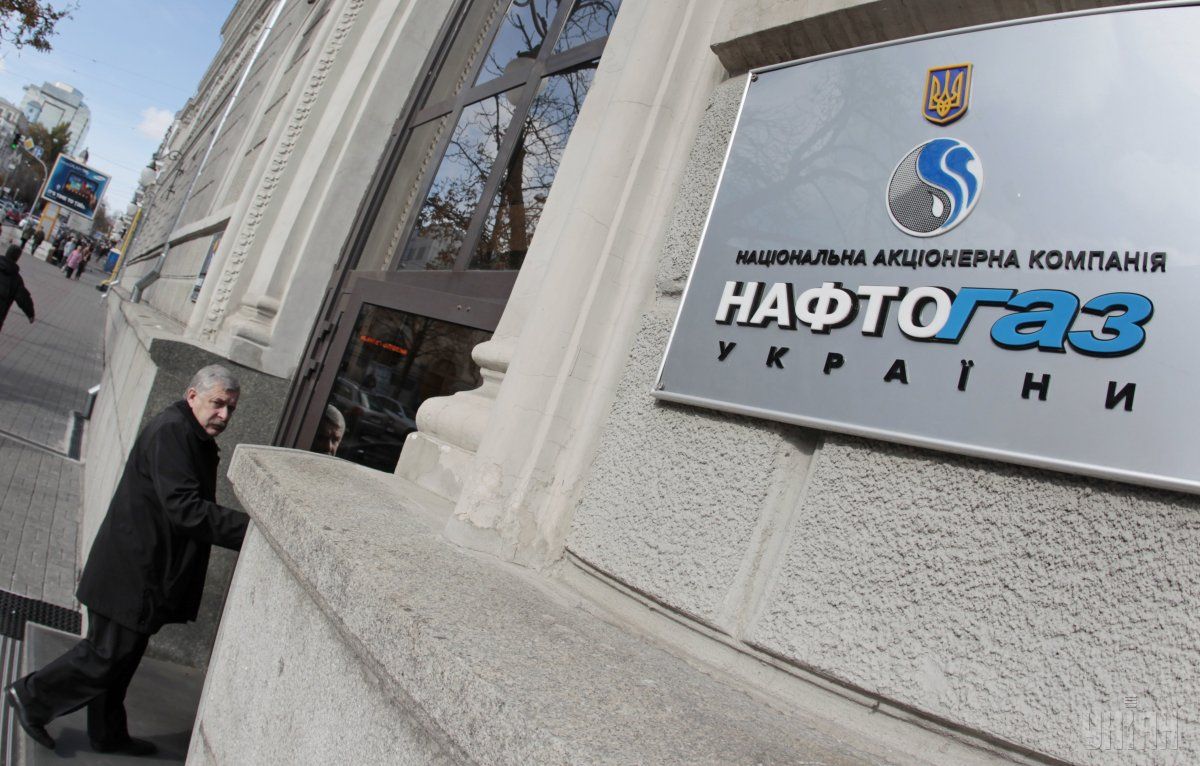
Western partners supporting Kobolyev’s position in the light of gas market reform will react, but not as quickly as they did over the Constitutional Court's move to abolish the norm punishing officials for illegal enrichment. They will need more time to recover from shock. And the question here is not even about how Western partners might support Kobolev (for his managerial or personal qualities), but about the brazen moves by Ukraine authorities, spitting in the face of corporate procedures introduced after the Revolution of Dignity and demonstrating the “old school” approach to managing state-owned companies (this approach has a name, and it's "milking").
Besides, in 2019, it is a no-go to mess up companies on which both economic and social stability in the country depend (Naftogaz, Energoatom, Ukrenergo), while the country's political leadership is engaged in campaigning fighting with each other instead of doing their job.
According to Honchar, the conflict situation is definitely connected with the elections. “First there is a scandal with Ukroboronropom, now there's Naftogaz... There are many people out there seeking to manually manage finances of state-owned companies, especially Naftogaz. Moreover, it's not so much in the context of the presidential campaign, which is already nearing completion, but in view of the autumn parliamentary elections. The authorities need to get at their disposal some money for large-scale campaign efforts, so that's how all the fuss around Naftogaz began. The position of the government, which owns the administrative resource, is to appoint loyal people to commercially important companies and oust those they can't control. Scandals between the Cabinet and Naftogaz have been going on for a while. Now everything has only aggravated, and one of the reasons is that Groysman's prospects are not so bright. It is unlikely that he will remain prime minister even if Poroshenko retains his post as the president will definitely begin to show 'new approaches' and use this pretext to remove Groysman. Besides, the new parliament is unlikely to support today's prime minister either. Therefore, he has one way out – to return to parliamentary work as a deputy."
"So all of this is part of Groysman's own election campaign: to claim he is exposing “rich fat managers” who make millions. However, in fact, he’s set to put his people on these positions to control financial flows," Honchar said.
There are two sides of the coin in this story, the expert believes. Naftogaz has ceased to be a burden for the budget, becoming a profitable efficient corporation, which, of course, is not the merit of Kobolyev alone, but of the whole gas market reform, which, however, would have never been possible without the will of Naftogaz CEO. But there is another side that makes Kobolyev politically vulnerable – one cannot disregard the negative public perception of not only the huge salaries and bonuses of the Naftogaz management but also extremely high gas tariffs. Although, again, the tariff issue is a question should rather be put before Groysman. But the majority of potential voters have no clue about such subtleties.
Honchar believes that it is difficult to predict how Kobolyev will act further. The decision of the Cabinet of Ministers leads the row into a corner of uncertainty. “The outcome of the announced contest remains unclear. What will be the next contract with the head of Naftogaz is also unclear, that is, the chaos is only mounting. In fact, the technology of disorganizing the largest energy company to the joy of Gazprom has been applied, the expert emphasizes.
Oleksandr Kharchenko, director of Energy Research Center, cites two reasons for the ongoing row: the first is that the government has not understood the essence of corporate governance reform, and the second is that Groysman is not ready to accept the fact that he will not be able to hand out commands to state-owned companies manually.
“The fact that the Cabinet of Ministers announces a competition contrary to the decision of the Supervisory Board of Naftogaz is a violation of the law on corporate governance of state companies. In order to cut off the political and corruption influence on the state corporation, the Supervisory Board mechanism was introduced where politicians represented by the government appoint it, while the board then appoints executive bodies. The government cannot put up with this. And these circumstances give rise to conflict. And the hype around this is only due to the pre-election period. I don't know how much Poroshenko is involved in all of this, but Groysman cannot tolerate Kobolyev and so he decided to handle the issue ahead of the elections, thinking who knows, maybe it works out… Everyone plays their own game now," says Kharchenko.
The expert doesn't dare to predict the outcome of the whole spat, while he doesn't rule out some sharp reaction on the part of our international partners because it was they who became the main drivers of “gas” reform (as well as other real reforms launched in Ukraine). Besides, they supported Kobolyev in everything, too.
"In the near future, everything should clear up. In the meantime, guys in Gazprom are drinking champagne. It is in their interests to see destabilization in Naftogaz, the company which poured so much salt on Gazprom's wound," the expert concluded.
While Gazprom is applauding and probably drafting more statements on Ukraine's "gas" instability, we are yet to see what the conflict will boil down to. But it is possible that it will only gain momentum. After all, ahead of the elections, someone is always happy to see conflicts escalate.
Nana Chornaya

